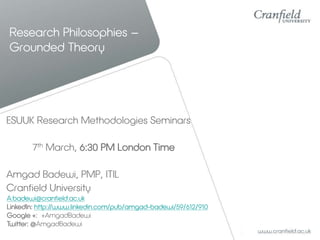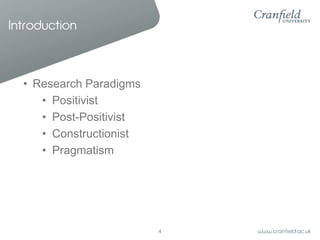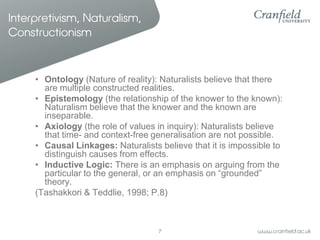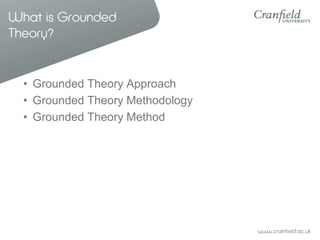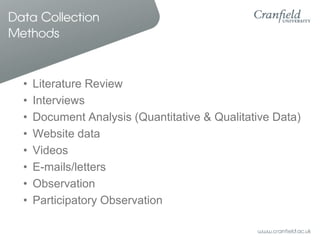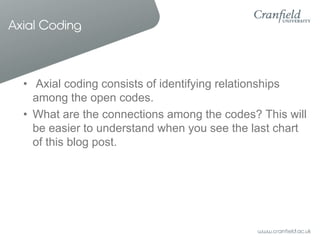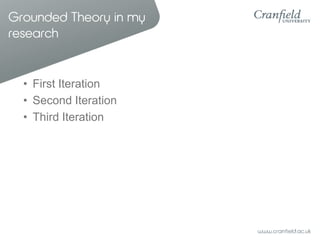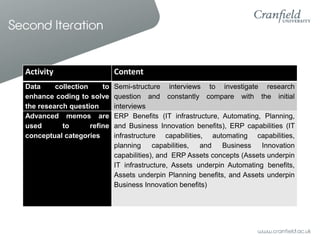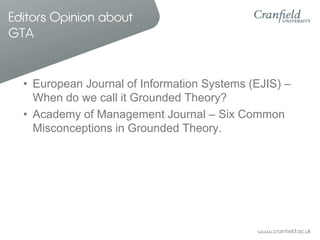The document outlines the concepts of research philosophies and methodologies, specifically focusing on grounded theory. It discusses various research paradigms such as positivism, post-positivism, and interpretivism, highlighting their differing views on reality and methodologies. Additionally, it details the processes involved in grounded theory research, including data collection, coding methods, and theoretical sampling, along with common misconceptions associated with grounded theory.
